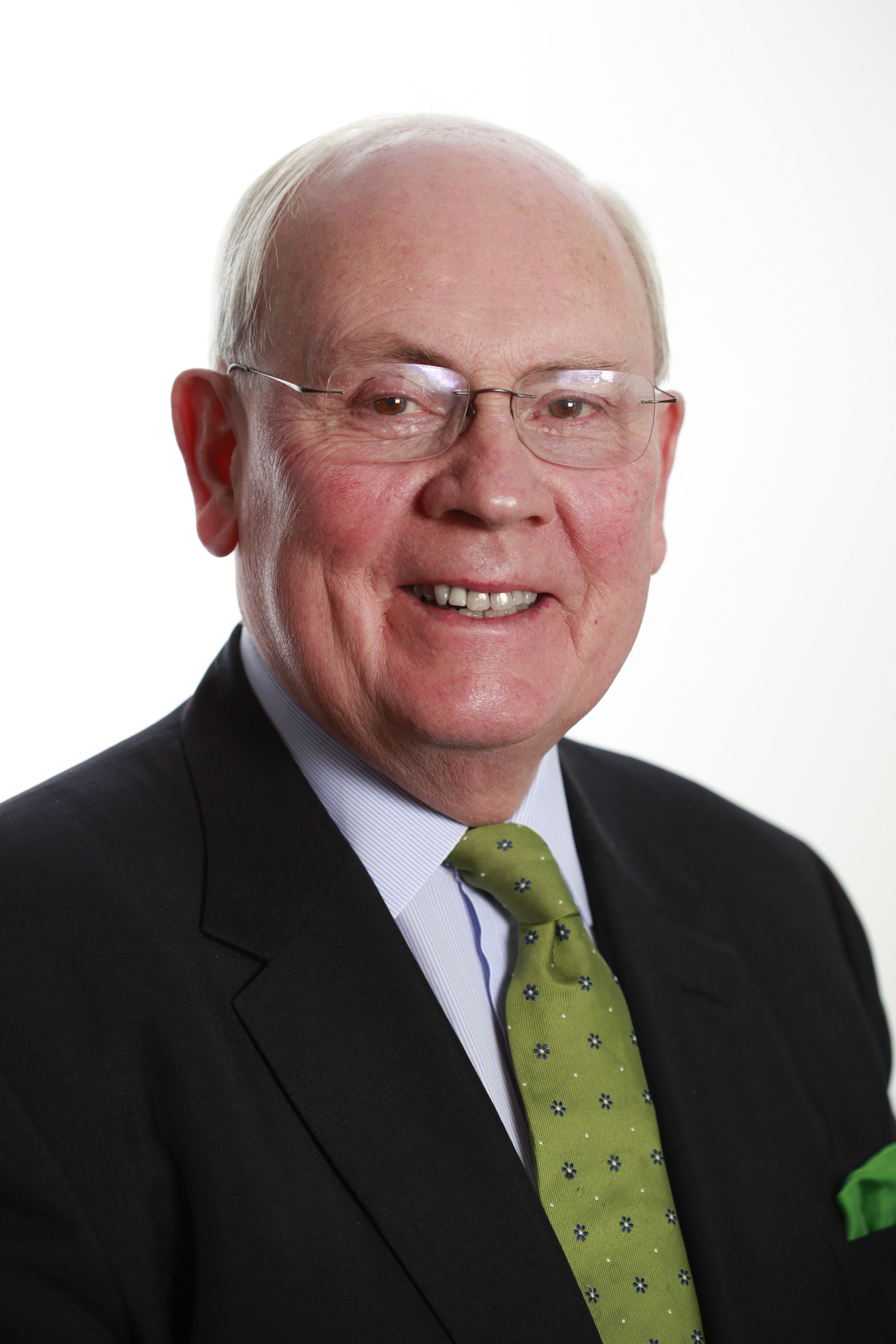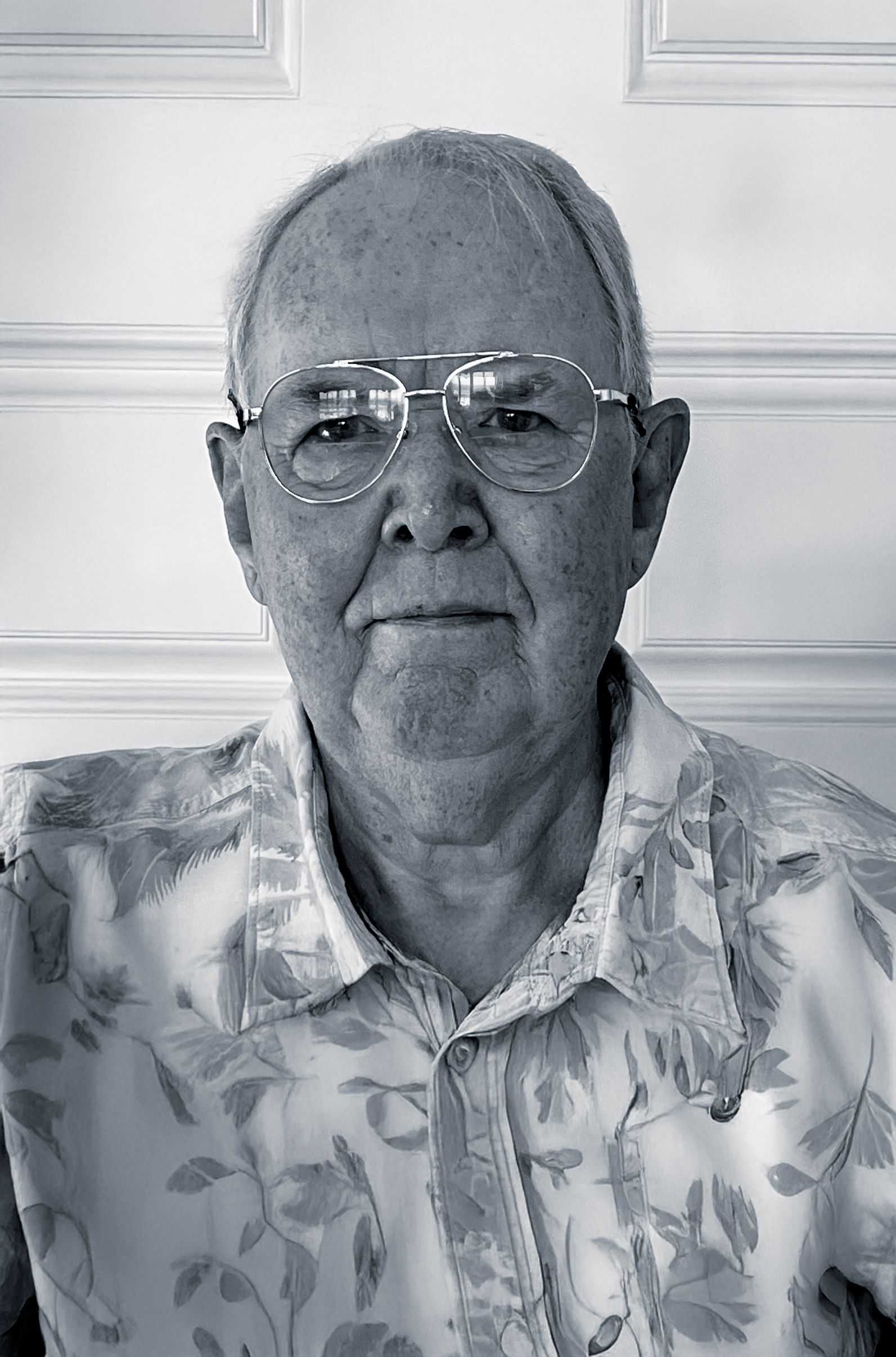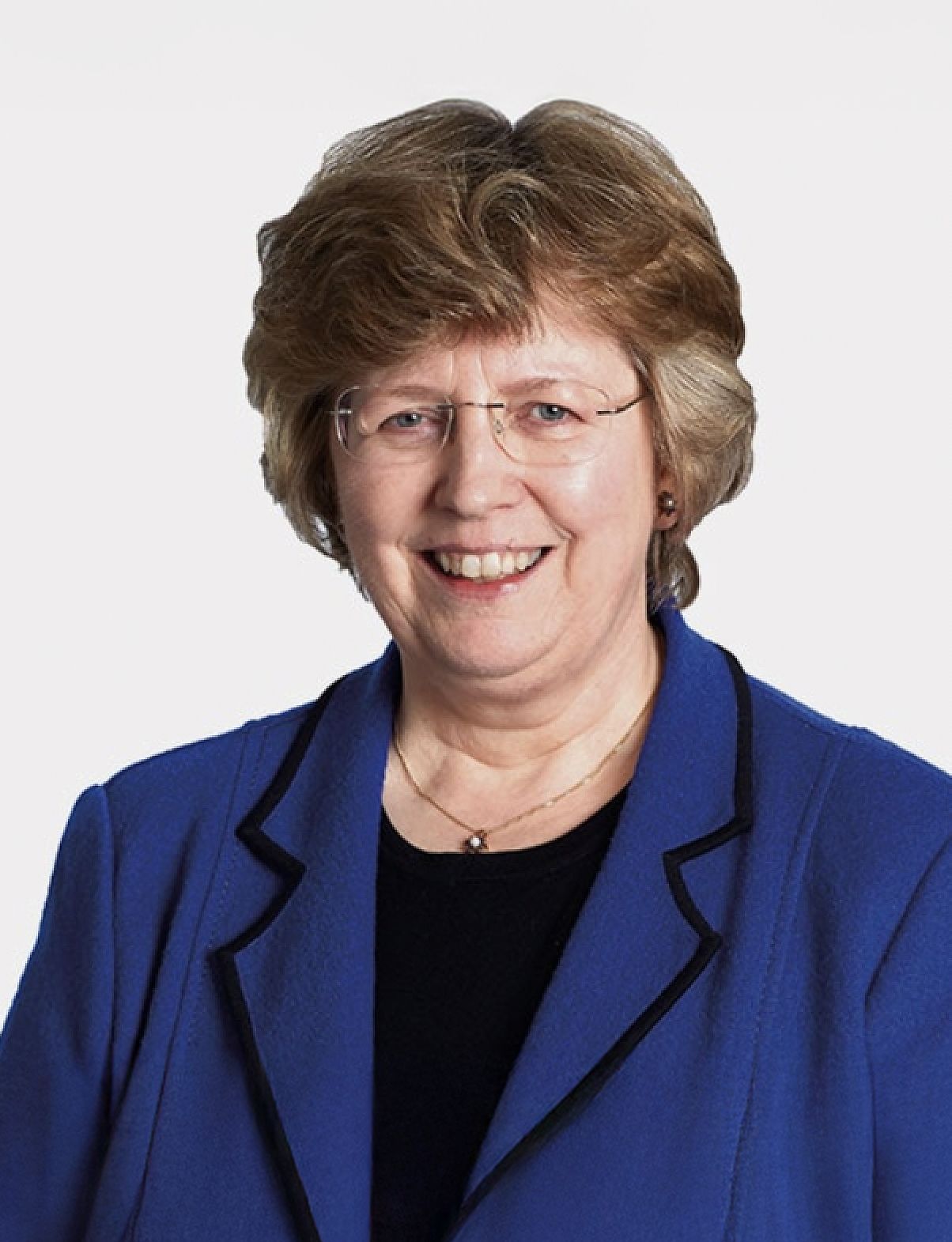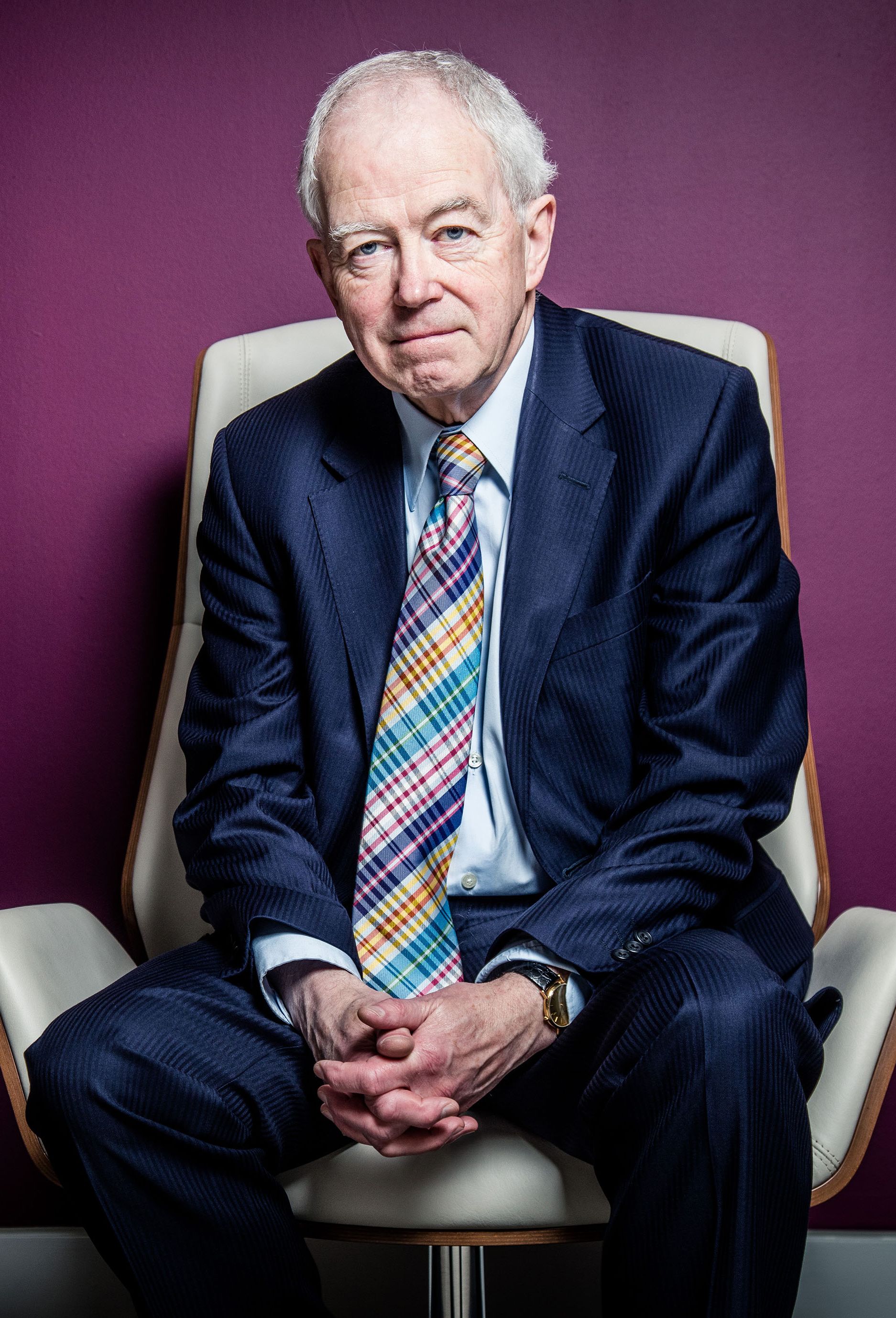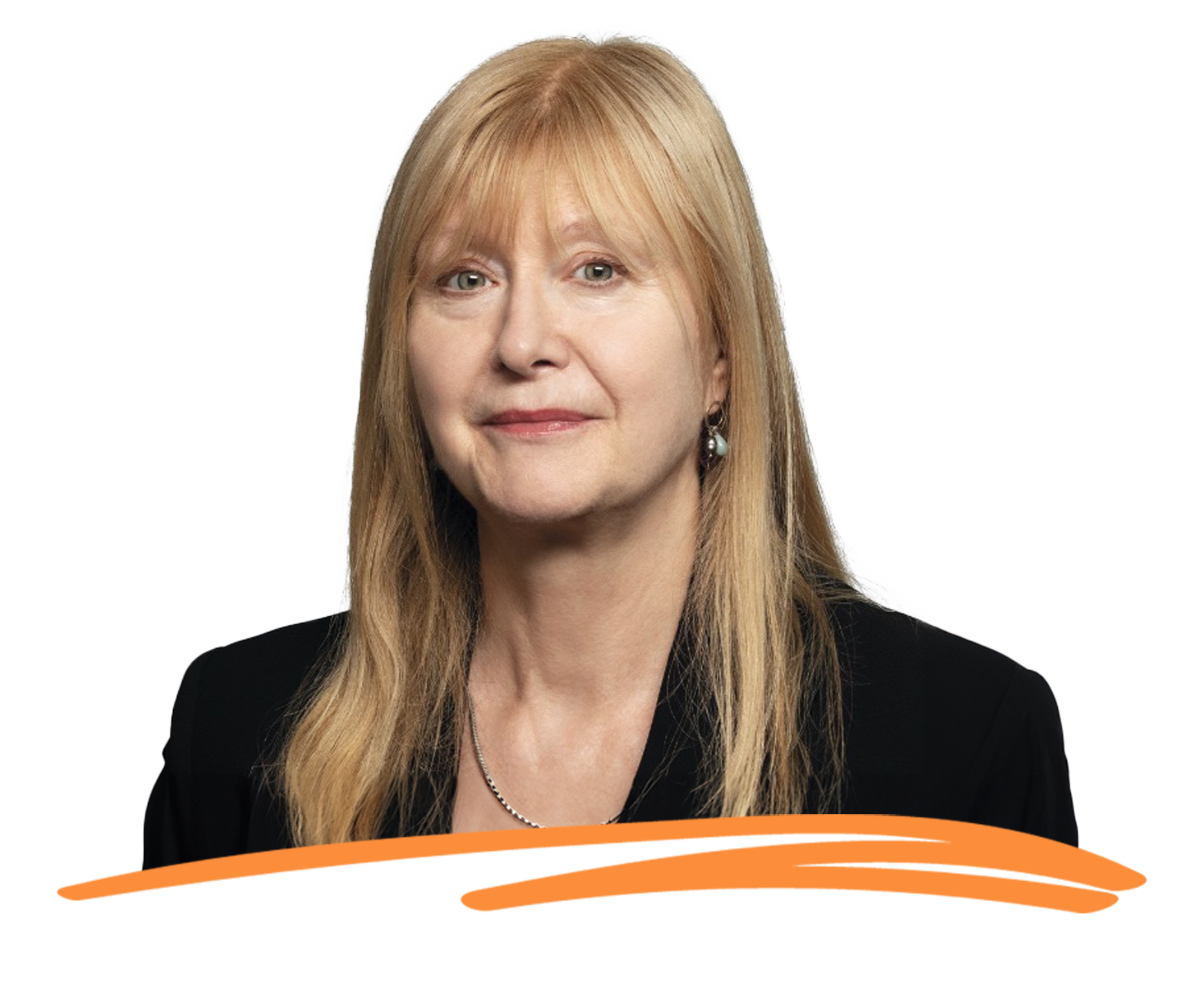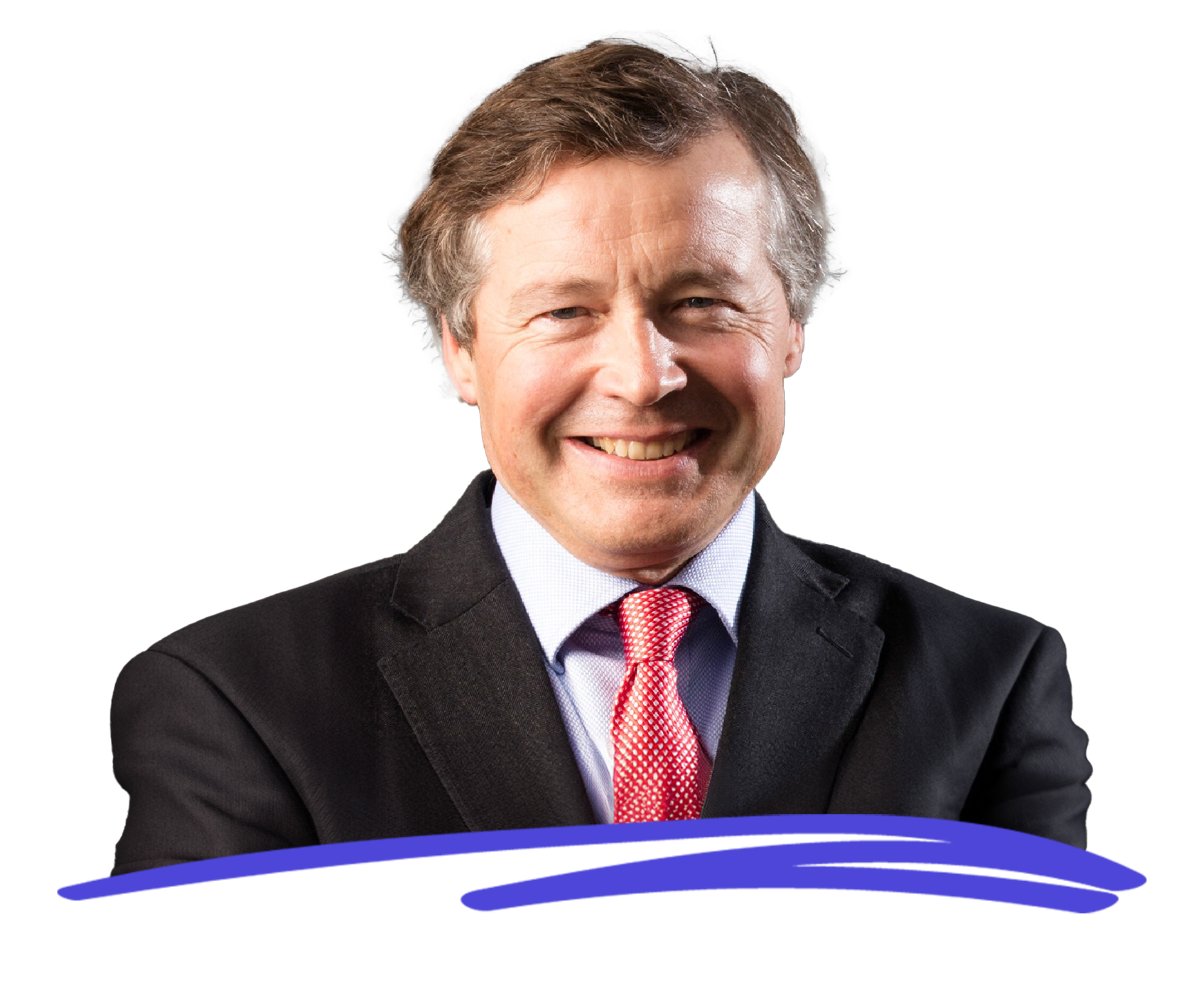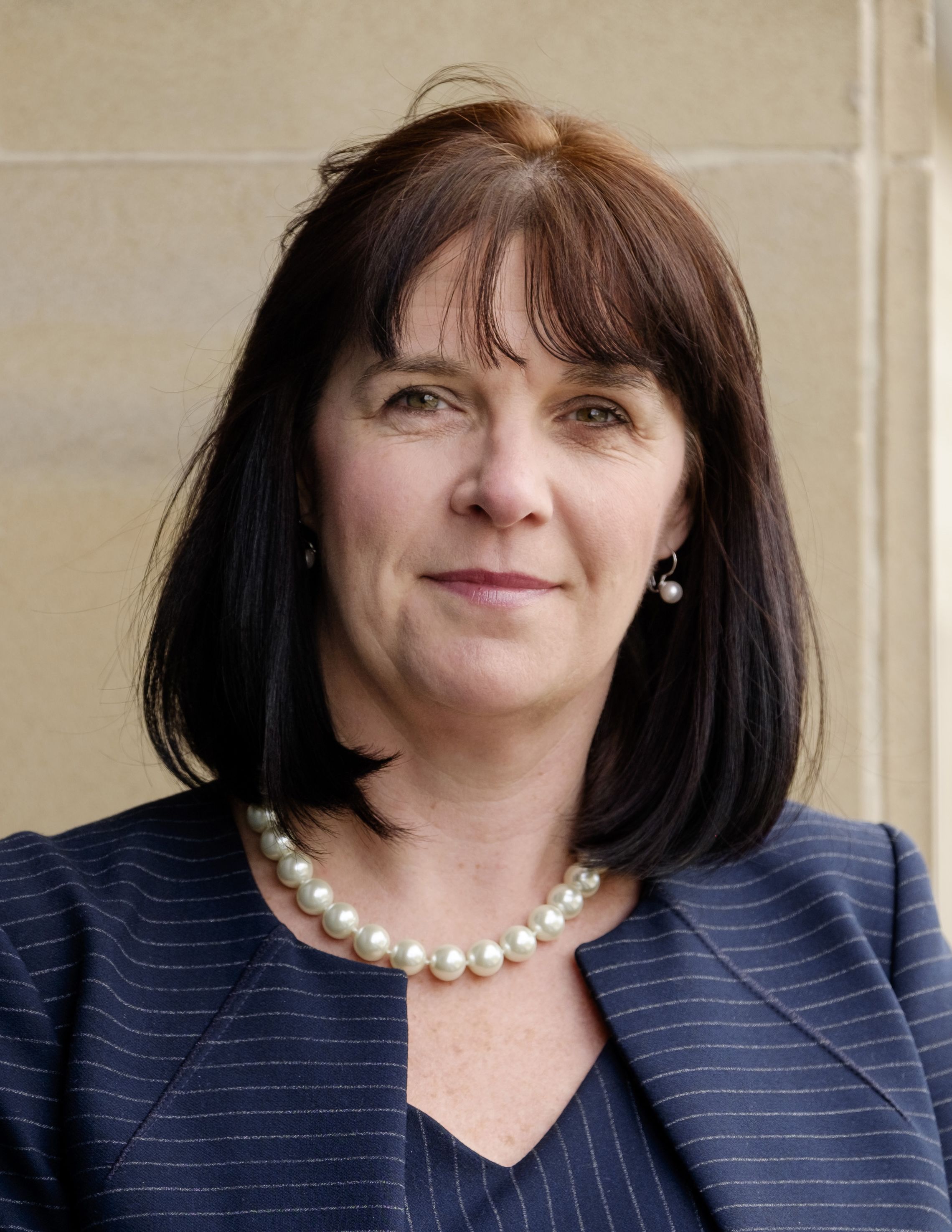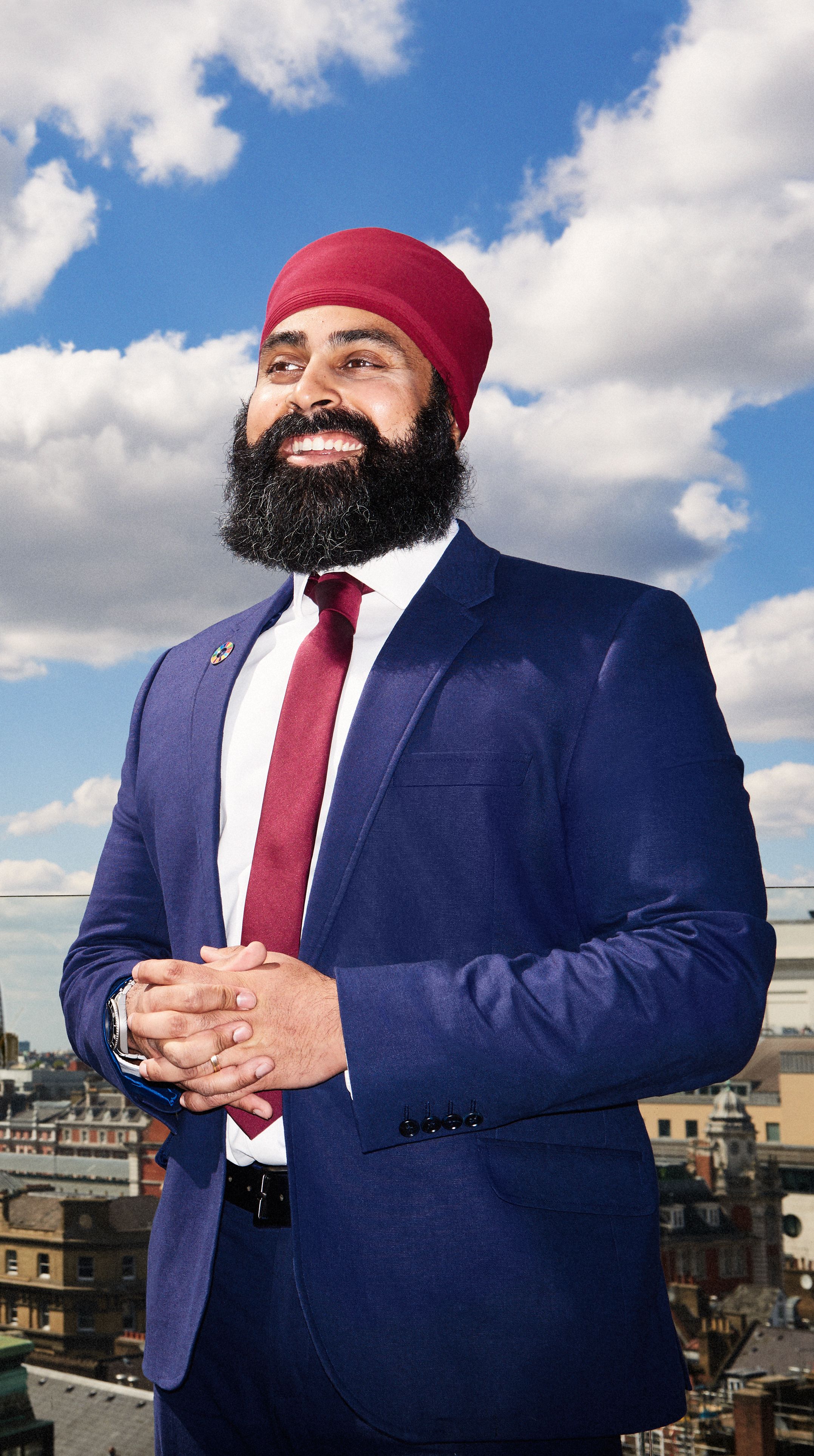View from the top
The ICAS President is drawn from the membership and serves a one-year term, typically following two years in the supporting office bearer roles. Here, Past Presidents from the early 1990s to just last year look back on their time in the role

View from the top
The ICAS President is drawn from the membership and serves a one-year term, typically following two years in the supporting office bearer roles. Here, Past Presidents from the early 1990s to just last year look back on their time in the role

Ian Percy CBE CA, 1990–91
My time in office was one of considerable turmoil for the profession, and we worked closely with our partners in ICAEW and ICAI (as it was then), in particular, across the whole area of company law, accounting and auditing standards.
In 1987, before my presidency, I was very involved as a member of Council, alongside Technical Director, Isobel Sharp CA. At a meeting with Michael Howard, the minister in charge of company law and accounting, we were invited to set up the joint company law strategy unit.
It was the first time the government had invited ICAS to lead a project with our partners in ICAEW and ICAI to advise on the future of company law and standard setting. We also led the project which resulted in the Auditing in the Twenty-First Century report, which had a major influence, here and internationally, and led to the Company’s Act 1989. Many of the proposals later found their way into the Cadbury Code, which was published in 1991 and instigated at my London members dinner in 1990.
Norman Lessels CA, President in 1987, invited me to prepare a paper on the future of the profession and the regulatory environment for the joint conference of the three institutes in Belfast. This led to detailed discussions about the possibility of setting up a British Institute of Chartered Accountants, merging ICAS and ICAEW, a proposal which was put to the members in early 1989.
While ICAEW members voted in favour by a large majority, our members voted against. Instead, they approved an independent strategy. Now Vice-President, I was asked to chair the task force which produced the proposals, “The Way Forward”, resulting from an in-depth analysis of the future of ICAS. It centred on education, research and member services, together with a strong relationship with the DTI and the European Commission. As one can imagine, this dominated my time in office.
In 2004, I had the privilege of chairing ICAS’ 150th anniversary conference, which brought worldwide representation under the theme “Seeking the truth in tomorrow’s business environment”. This influenced our emphasis on ethical behaviour and later the formation of the ICAS Foundation. What stands out now is ICAS’ strength, size of membership, both UK-wide and worldwide, and undoubted international reputation.
Ian Percy CBE CA,
1990–91
My time in office was one of considerable turmoil for the profession, and we worked closely with our partners in ICAEW and ICAI (as it was then), in particular, across the whole area of company law, accounting and auditing standards.
In 1987, before my presidency, I was very involved as a member of Council, alongside Technical Director, Isobel Sharp CA. At a meeting with Michael Howard, the minister in charge of company law and accounting, we were invited to set up the joint company law strategy unit.
It was the first time the government had invited ICAS to lead a project with our partners in ICAEW and ICAI to advise on the future of company law and standard setting. We also led the project which resulted in the Auditing in the Twenty-First Century report, which had a major influence, here and internationally, and led to the Company’s Act 1989. Many of the proposals later found their way into the Cadbury Code, which was published in 1991 and instigated at my London members dinner in 1990.
Norman Lessels CA, President in 1987, invited me to prepare a paper on the future of the profession and the regulatory environment for the joint conference of the three institutes in Belfast. This led to detailed discussions about the possibility of setting up a British Institute of Chartered Accountants, merging ICAS and ICAEW, a proposal which was put to the members in early 1989.
While ICAEW members voted in favour by a large majority, our members voted against. Instead, they approved an independent strategy. Now Vice-President, I was asked to chair the task force which produced the proposals, “The Way Forward”, resulting from an in-depth analysis of the future of ICAS. It centred on education, research and member services, together with a strong relationship with the DTI and the European Commission. As one can imagine, this dominated my time in office.
In 2004, I had the privilege of chairing ICAS’ 150th anniversary conference, which brought worldwide representation under the theme “Seeking the truth in tomorrow’s business environment”. This influenced our emphasis on ethical behaviour and later the formation of the ICAS Foundation. What stands out now is ICAS’ strength, size of membership, both UK-wide and worldwide, and undoubted international reputation.
Primrose Scott CA, 1994–95
As President [as Primrose McCabe], I particularly enjoyed having the time and opportunity to visit other ICAS members in all parts of the UK. I was also able to travel and meet leaders of professional accountancy bodies around the world. Some of these people, like the President of the Canadian institute, became lifelong friends.
When I had the honour of becoming your first female President it seemed to be concrete proof that women were advancing in the profession. At the commencement of my training there were very few female apprentices, and indeed very few qualified female CAs. The only other woman in my training years in Glasgow was called Iris – we were known as the “flowery weeds”!
After my ICAS training I realised the value of having a women members group approved by the institute, so we could support each other and meet socially. This group lasted many years, but fortunately, by the time of my presidency, the number of women qualified or in training had substantially increased, rendering a separate group unnecessary.
On behalf of ICAS, I instigated a quality-control procedure whereby a group of examiners were appointed to visit all small independent firms to advise on their procedures and make suggestions for any improvements. This approach seemed to be appreciated by all the firms visited.
CAs continue to be highly respected all over the world. The recent strides in technology have enabled information to be shared and acted upon so much more quickly and easily than in the past. Unfortunately, the dangers of fraud and misinformation are also rising. I have some reservations about the future lack of personal human interaction possibly leading to a degree of loneliness, perhaps even despair, in some small enterprises. For myself, I very much appreciate the opportunity to meet and greet old friends annually at the Gold Club lunches. Long may they continue.
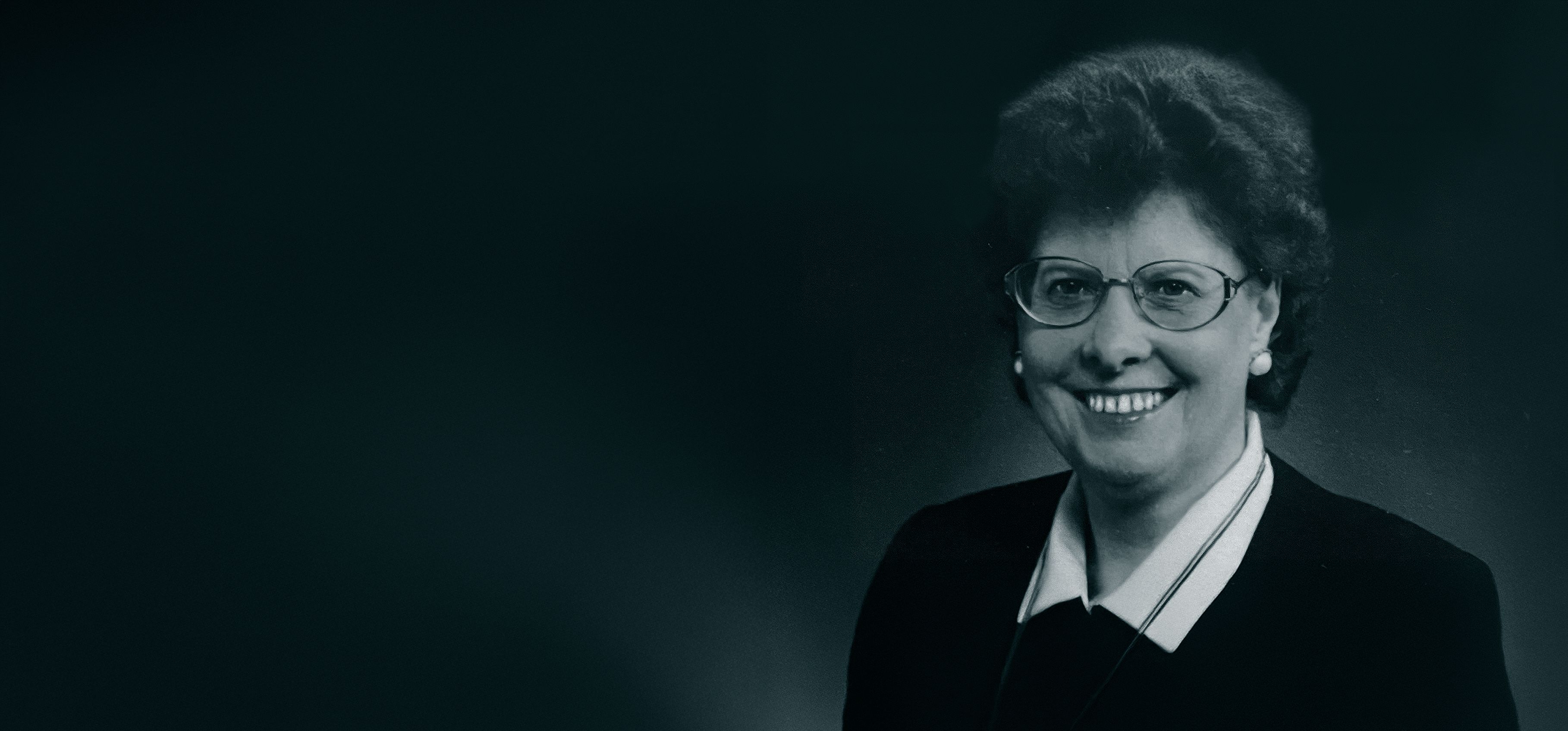
Primrose Scott CA, 1994–95
As President [as Primrose McCabe], I particularly enjoyed having the time and opportunity to visit other ICAS members in all parts of the UK. I was also able to travel and meet leaders of professional accountancy bodies around the world. Some of these people, like the President of the Canadian institute, became lifelong friends.
When I had the honour of becoming your first female President it seemed to be concrete proof that women were advancing in the profession. At the commencement of my training there were very few female apprentices, and indeed very few qualified female CAs. The only other woman in my training years in Glasgow was called Iris – we were known as the “flowery weeds”!
After my ICAS training I realised the value of having a women members group approved by the institute, so we could support each other and meet socially. This group lasted many years, but fortunately, by the time of my presidency, the number of women qualified or in training had substantially increased, rendering a separate group unnecessary.
On behalf of ICAS, I instigated a quality-control procedure whereby a group of examiners were appointed to visit all small independent firms to advise on their procedures and make suggestions for any improvements. This approach seemed to be appreciated by all the firms visited.
CAs continue to be highly respected all over the world. The recent strides in technology have enabled information to be shared and acted upon so much more quickly and easily than in the past. Unfortunately, the dangers of fraud and misinformation are also rising. I have some reservations about the future lack of personal human interaction possibly leading to a degree of loneliness, perhaps even despair, in some small enterprises. For myself, I very much appreciate the opportunity to meet and greet old friends annually at the Gold Club lunches. Long may they continue.

Grenville Shaw Johnston CVO OBE CA, 2000–01
There are many father-and-son CAs in ICAS. But my father, who founded what became Johnston Carmichael, missed out on becoming President by a whisker. He once asked me if I might ever take the role. Of course, I did not know. But in 1998, then-President Archie Hunter CA asked if I would become Junior Vice President, leading on to the presidency.
“You will want to discuss this with your wife and family, and of course the firm, so can I give you seven days to think about it?” he said. “Archie,” I replied, “how would 30 seconds do?” And that was me on the treadmill.
Being the first Highlander to be President gave me a head start. The number of members who came out of the woodwork to see me was so pleasing. “I am from Elgin and have never been to an ICAS evening until I noticed you were from Elgin too,” said one. That was in London.
The late Harry Wilken CA wrote in from Bermuda. “We have not had a visit from the President for years and we want one now.” No prizes for guessing where Harry came from! There were 35 CAs in Bermuda and it was a worthwhile visit.
My term as President saw the US propose a worldwide qualification of accountants, suggesting “Cognitor” as the name. We met in New York to discuss it, but most of the world institutes were wary. Guess where it would’ve been based! After much deliberation we decided it was not for us.
At this time we decided to have a memorial site for those members who had perished in the two world wars. I launched an appeal to support this project. There are 350 names in the remembrance book, and I have a copy beside me as I write this. We must never forget what our members have done for us during our 170 years.
The CA remains the best qualification in the world. I have advised countless young people who did not know what to do next to become a CA – and I’ve been delighted at their subsequent success. ICAS has grasped the future in all aspects. Some of it I do not pretend to understand (thank goodness I am not an apprentice again!), but I applaud the emphasis on ethics.
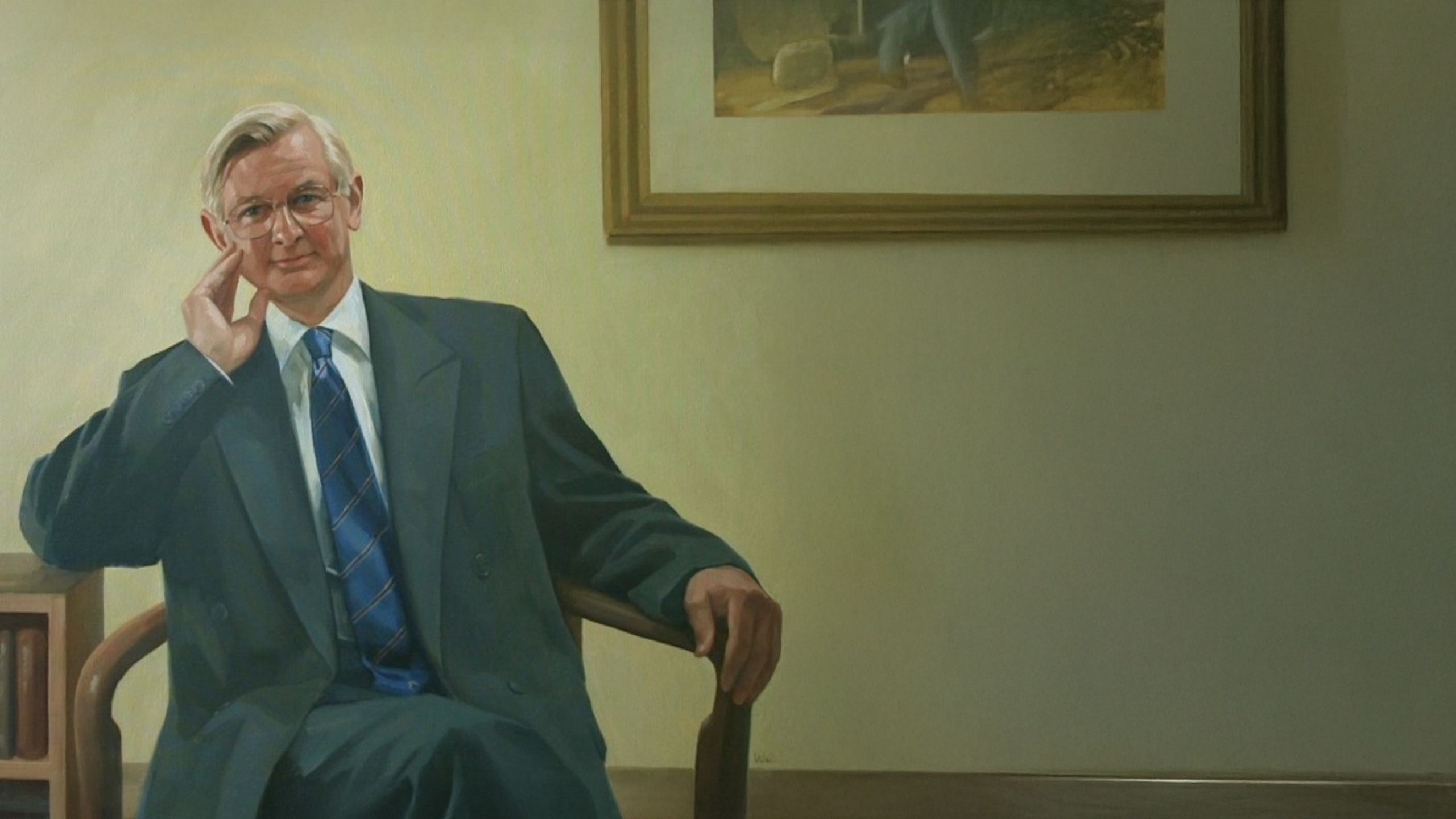
Grenville Shaw Johnston CVO OBE CA, 2000–01
There are many father-and-son CAs in ICAS. But my father, who founded what became Johnston Carmichael, missed out on becoming President by a whisker. He once asked me if I might ever take the role. Of course, I did not know. But in 1998, then-President Archie Hunter CA asked if I would become Junior Vice President, leading on to the presidency.
“You will want to discuss this with your wife and family, and of course the firm, so can I give you seven days to think about it?” he said. “Archie,” I replied, “how would 30 seconds do?” And that was me on the treadmill.
Being the first Highlander to be President gave me a head start. The number of members who came out of the woodwork to see me was so pleasing. “I am from Elgin and have never been to an ICAS evening until I noticed you were from Elgin too,” said one. That was in London.
The late Harry Wilken CA wrote in from Bermuda. “We have not had a visit from the President for years and we want one now.” No prizes for guessing where Harry came from! There were 35 CAs in Bermuda and it was a worthwhile visit.
My term as President saw the US propose a worldwide qualification of accountants, suggesting “Cognitor” as the name. We met in New York to discuss it, but most of the world institutes were wary. Guess where it would’ve been based! After much deliberation we decided it was not for us.
At this time we decided to have a memorial site for those members who had perished in the two world wars. I launched an appeal to support this project. There are 350 names in the remembrance book, and I have a copy beside me as I write this. We must never forget what our members have done for us during our 170 years.
The CA remains the best qualification in the world. I have advised countless young people who did not know what to do next to become a CA – and I’ve been delighted at their subsequent success. ICAS has grasped the future in all aspects. Some of it I do not pretend to understand (thank goodness I am not an apprentice again!), but I applaud the emphasis on ethics.
Ian Robertson CA,
2004–05
As President, I had the opportunity to meet members around the country and abroad, including old friends and fellow trainees I had not seen in years. Some of those encounters led to a group of us meeting regularly, right up to the present day.
I also had the privilege of leading ICAS’ celebrations of its 150th year, including welcoming many senior names in world accounting to our events in Edinburgh.
To plagiarise the words of an illustrious predecessor, it was a huge thing for “a wee (in my case, not so wee!) boy from Mount Florida” to achieve such an office. It reconfirmed that anyone, from any background, can aspire to the highest levels of ICAS, and that their personal contribution will be respected and considered seriously. In my case, I only had two years in the office bearer team, not the usual three, and much of that was taken up with planning our anniversary celebrations and bringing to a conclusion one of our regular strategic reviews, which came at a time of concern over student numbers. I like to think that review improved ICAS. Certainly the student numbers firmed up in the years that followed. The 150th celebrations were also highly successful and consolidated ICAS’ reputation as a major player in the accounting world.
As ICAS now celebrates its 170th anniversary, it has shown that it embraces change and uses technological advances to benefit members, students and ICAS itself. A less confident and capable organisation might have feared the pace of change. ICAS has used it to maintain and advance its position.
Of the profession generally, my regret is that, just as 25 years ago, there is an expectation gap between what the public and users of our skills and services expect from us, and what we actually deliver – particularly in the areas of audit and regulation. I hope ICAS will continue to be in the front line of delivering change in these areas, and that government will be more willing to enact the reforms we need.
Ian Robertson CA,
2004–05
As President, I had the opportunity to meet members around the country and abroad, including old friends and fellow trainees I had not seen in years. Some of those encounters led to a group of us meeting regularly, right up to the present day.
I also had the privilege of leading ICAS’ celebrations of its 150th year, including welcoming many senior names in world accounting to our events in Edinburgh.
To plagiarise the words of an illustrious predecessor, it was a huge thing for “a wee (in my case, not so wee!) boy from Mount Florida” to achieve such an office. It reconfirmed that anyone, from any background, can aspire to the highest levels of ICAS, and that their personal contribution will be respected and considered seriously. In my case, I only had two years in the office bearer team, not the usual three, and much of that was taken up with planning our anniversary celebrations and bringing to a conclusion one of our regular strategic reviews, which came at a time of concern over student numbers. I like to think that review improved ICAS. Certainly the student numbers firmed up in the years that followed. The 150th celebrations were also highly successful and consolidated ICAS’ reputation as a major player in the accounting world.
As ICAS now celebrates its 170th anniversary, it has shown that it embraces change and uses technological advances to benefit members, students and ICAS itself. A less confident and capable organisation might have feared the pace of change. ICAS has used it to maintain and advance its position.
Of the profession generally, my regret is that, just as 25 years ago, there is an expectation gap between what the public and users of our skills and services expect from us, and what we actually deliver – particularly in the areas of audit and regulation. I hope ICAS will continue to be in the front line of delivering change in these areas, and that government will be more willing to enact the reforms we need.
Isobel Sharp CBE CA, 2007–08
The best thing about my year as President was that nothing of any significance went wrong. My predecessor had to cope with a change of Chief Executive and my successor had the Global Financial Crisis. But what I remember most fondly is the goodwill and encouragement I received from members. For example, I still remember an email from a CA in Australia who was feeling a bit down, perhaps because of having to do the ironing. She then read that month’s President’s column in the magazine. It cheered her so much that she wrote to me. Another CA said he had been dreading my speech at the local area annual dinner, but that he got a shock when he heard it!
ICAS has featured large in my career. While at Thomson McLintock, I worked with Peter McMonnies CA and Sir David Tweedie CA, both of whom had been at ICAS. I followed that tradition, working at the old Queen Street offices from 1984 to 1989. I then moved to London, but not before I was advised that “the institute was not ready for a female Chief Executive”.
In the 1990s I was a member of Council, the Chair of the England and Wales Area Committee and of the estates working party, which led the project to vacate Queen Street after 109 years and build the current ICAS offices at Haymarket. Becoming President was, for me, the icing on the cake of a long association.
The greatest challenge of my term was promoting the profession as a meritocracy. Opportunities should be available to everyone, regardless of background, race, religion or gender. It has been amazing to see the progress on this over my career. But as with many aspects of our work it needs continual care and attention.
One recurring theme in my years as a CA is that the profession has been under relentless pressure. The one constant is change. After 170 years we are still seeking the truth. My hope is that issuing more rules and reams of guidance will not be the answer.
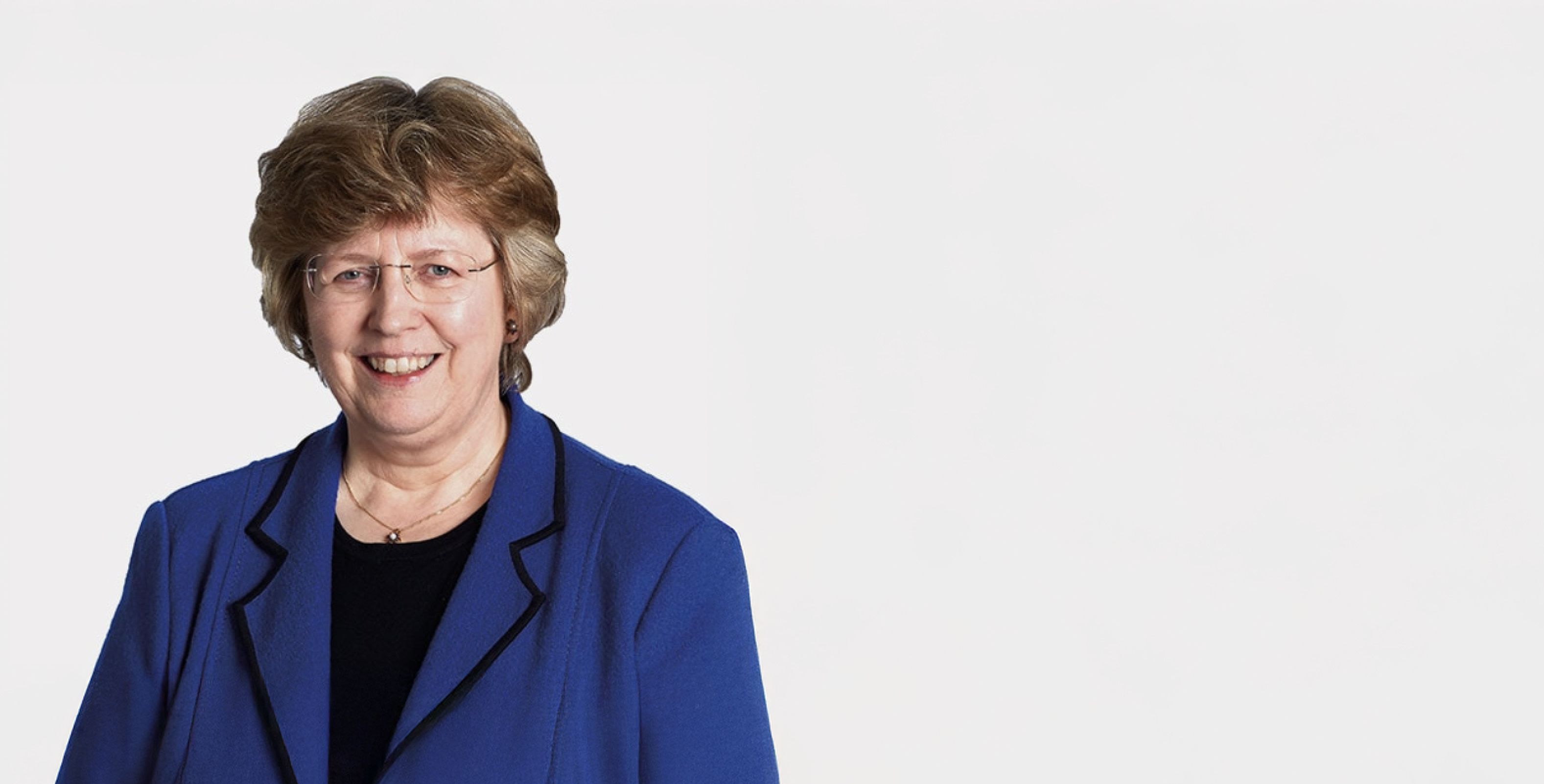
Isobel Sharp CBE CA, 2007–08
The best thing about my year as President was that nothing of any significance went wrong. My predecessor had to cope with a change of Chief Executive and my successor had the Global Financial Crisis. But what I remember most fondly is the goodwill and encouragement I received from members. For example, I still remember an email from a CA in Australia who was feeling a bit down, perhaps because of having to do the ironing. She then read that month’s President’s column in the magazine. It cheered her so much that she wrote to me. Another CA said he had been dreading my speech at the local area annual dinner, but that he got a shock when he heard it!
ICAS has featured large in my career. While at Thomson McLintock, I worked with Peter McMonnies CA and Sir David Tweedie CA, both of whom had been at ICAS. I followed that tradition, working at the old Queen Street offices from 1984 to 1989. I then moved to London, but not before I was advised that “the institute was not ready for a female Chief Executive”.
In the 1990s I was a member of Council, the Chair of the England and Wales Area Committee and of the estates working party, which led the project to vacate Queen Street after 109 years and build the current ICAS offices at Haymarket. Becoming President was, for me, the icing on the cake of a long association.
The greatest challenge of my term was promoting the profession as a meritocracy. Opportunities should be available to everyone, regardless of background, race, religion or gender. It has been amazing to see the progress on this over my career. But as with many aspects of our work it needs continual care and attention.
One recurring theme in my years as a CA is that the profession has been under relentless pressure. The one constant is change. After 170 years we are still seeking the truth. My hope is that issuing more rules and reams of guidance will not be the answer.
Sir David Tweedie CA, 2012–13
The best thing about being President was having the opportunity to meet and debate with policy makers and to get closer to members. I met representatives of government and regulators, CAs I’d taught at Edinburgh University, fellow apprentices with whom I trained and even a CA who qualified the year I was born (and I was not a young President!).
Right from my early days as an apprentice, I felt very attached to ICAS. We heard lectures in its premises from the old war horses of the profession, many of whom became president. We did not have an ethical code in those days – ethics just dripped down to you from these practitioners. Throughout my professional career I’ve tried to follow the motto quaere verum (seek the truth), which is what being a CA is all about. I felt proud to be asked to be President of the oldest accounting institute, and to follow in the footsteps of so many who taught me throughout my career.
My most important contribution in the role was the ICAS Foundation, which was born during a car journey with Anton Colella, the then CEO. Anton, a former headteacher, talked about young people from low-income and challenging backgrounds and how many dropped out of university. So we resolved to try to help by giving those who wished to pursue a financial career, and had attained university entrance qualifications, both a bursary and a CA mentor. To date the ICAS Foundation has supported some 360 university students, many of whom have started ICAS training, and awarded over £2.6m in bursaries. This initiative is the best thing I’ve done in my professional career.
I’ve always felt ICAS is a compact and friendly organisation. Its size enables it to be nimble and react quickly to events. It takes the moral high ground, is innovative and changes the thinking in the profession with documents such as “Making Corporate Reports Valuable” and “The Power of One”. As I travelled to different countries, I was always impressed and delighted with the respect in which ICAS was held. There is a cachet in being a CA and I’m extremely proud to be one.
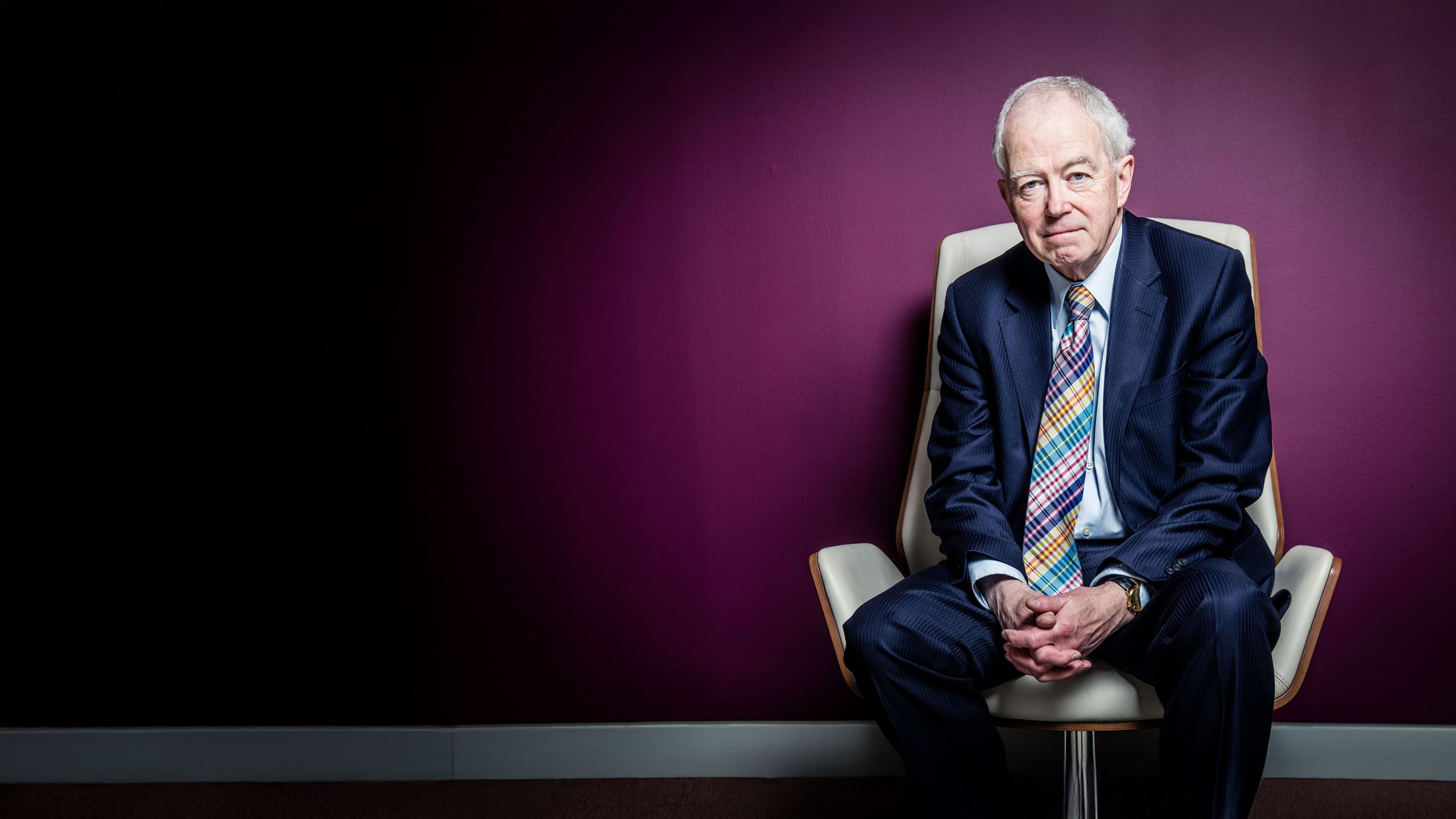
Sir David Tweedie CA,
2012–13
The best thing about being President was having the opportunity to meet and debate with policy makers and to get closer to members. I met representatives of government and regulators, CAs I’d taught at Edinburgh University, fellow apprentices with whom I trained and even a CA who qualified the year I was born (and I was not a young President!).
Right from my early days as an apprentice, I felt very attached to ICAS. We heard lectures in its premises from the old war horses of the profession, many of whom became president. We did not have an ethical code in those days – ethics just dripped down to you from these practitioners. Throughout my professional career I’ve tried to follow the motto quaere verum (seek the truth), which is what being a CA is all about. I felt proud to be asked to be President of the oldest accounting institute, and to follow in the footsteps of so many who taught me throughout my career.
My most important contribution in the role was the ICAS Foundation, which was born during a car journey with Anton Colella, the then CEO. Anton, a former headteacher, talked about young people from low-income and challenging backgrounds and how many dropped out of university. So we resolved to try to help by giving those who wished to pursue a financial career, and had attained university entrance qualifications, both a bursary and a CA mentor. To date the ICAS Foundation has supported some 360 university students, many of whom have started ICAS training, and awarded over £2.6m in bursaries. This initiative is the best thing I’ve done in my professional career.
I’ve always felt ICAS is a compact and friendly organisation. Its size enables it to be nimble and react quickly to events. It takes the moral high ground, is innovative and changes the thinking in the profession with documents such as “Making Corporate Reports Valuable” and “The Power of One”. As I travelled to different countries, I was always impressed and delighted with the respect in which ICAS was held. There is a cachet in being a CA and I’m extremely proud to be one.
Jann Brown CA,
2014–15
What did I enjoy most about being President? Not the amount of public speaking, that’s for sure! But I did like meeting so many people, from students just starting their journey through to the Gold Club members who were still going strong and proud to be CAs.
My becoming President showed that an ordinary person from an ordinary background like mine could go anywhere and do anything with a CA training. That’s something I’ve carried with me. One of my proudest achievements during my term was connecting mentors to younger CAs at different points in their careers. Today, I’m a trustee of the ICAS Foundation, so I see the huge difference that positive mentoring relationships can make every day.
One thing that stands out to me about ICAS is that it’s never afraid to say and do what needs to be said and done. In an era when so much trust in public figures has been eroded, ICAS stands out as a body which remains true to its values. The drive to do the right things is as strong in the students and younger CAs as it ever was, if not stronger, and that gives me much hope for the future.

Sandy Manson CA, 2018–19
The most enjoyable thing about my time as President was working with the most inspirational, energised and talented people imaginable, both on Council and the executive team. Secondly, I travelled to meet CAs in many different places, from Australia and Zimbabwe to Europe and North America, and I was constantly amazed, but not surprised, by the strong emotional connection members have to the CA qualification and I+
I still pinch myself that I had the honour of being President. I have always stressed the importance of stretching one’s comfort zones, and following the remarkable Sir Brian Souter CA as President was exactly one of those experiences for me. Being a CA has been the key to what I have achieved in this world, and joining Council, and then being President, was an opportunity to try to give something back.
When I became President we had just appointed Bruce Cartwright CA as our new CEO, and one of our priorities as Council was to sit down and refresh our strategy. I will never forget the energy, clarity and focus that came out of that two-day session as we set our priorities. This included making changes to the CA qualification and our educational offering, our governance framework (with 40 changes recommended), our member and service focus, and implementing a transformational digital platform.
On a lighter note, my good friend, Feargal McCormack (then President of CAI) and I instigated an annual golf match between the two bodies. It has been played every year since and is proving to be a wonderfully sociable and competitive fixture.
In a world where personal and professional behaviour can too often be driven by a focus on short-term thinking and personal reward, ICAS has for 170 years stood as a beacon for the very highest of ethical and professional standards. The contribution which the institute and CAs have made to building a better and more sustainable world is immeasurable. It reminds us all that you don’t need to be the biggest professional body to make a lasting impact, but you do need to keep aspiring to be distinctive – and the best.

Catherine Burnet CA, 2020–21
My presidential year coincided with Covid, so it was a different kind of experience. But the thing I enjoyed most during that year was the ability to meet such a wide range of CAs – both across the UK and around the world. In some ways the huge progress we saw with video-conferencing technology allowed me to connect with a much broader range of members than might have been possible through travel. All from my dining room – which became a familiar backdrop on many calls.
Being President was a huge honour. I had been involved with ICAS for around 10 years – as Chair of the Audit Committee and then the Oversight Board – and am incredibly proud to be a CA. So to have a role where I could represent ICAS and work closely with Bruce, the exec team and Council to shape its future was a privilege.
The onset of the pandemic meant a focus on working with both to ensure ICAS was match fit for what were completely changed circumstances – for training, exams, assessments, support for members and events. It required transformational change. We were really proud that all our students were able to stay on track for qualification and that ICAS was set up for success post-pandemic.
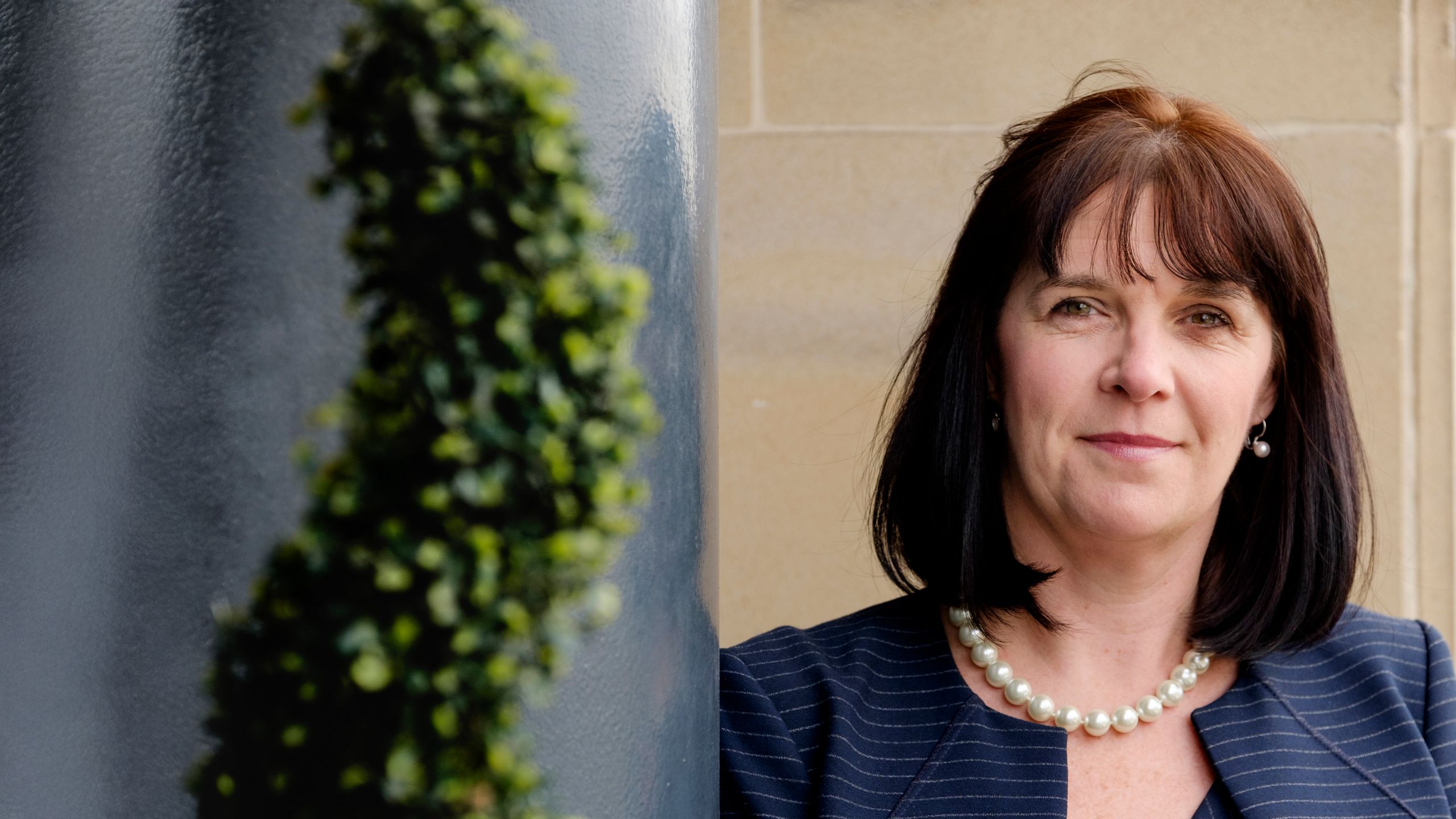
Catherine Burnet CA,
2020–21
My presidential year coincided with Covid, so it was a different kind of experience. But the thing I enjoyed most during that year was the ability to meet such a wide range of CAs – both across the UK and around the world. In some ways the huge progress we saw with video-conferencing technology allowed me to connect with a much broader range of members than might have been possible through travel. All from my dining room – which became a familiar backdrop on many calls.
Being President was a huge honour. I had been involved with ICAS for around 10 years – as Chair of the Audit Committee and then the Oversight Board – and am incredibly proud to be a CA. So to have a role where I could represent ICAS and work closely with Bruce, the exec team and Council to shape its future was a privilege.
The onset of the pandemic meant a focus on working with both to ensure ICAS was match fit for what were completely changed circumstances – for training, exams, assessments, support for members and events. It required transformational change. We were really proud that all our students were able to stay on track for qualification and that ICAS was set up for success post-pandemic.
Indy Singh Hothi CA, 2022-23
I thoroughly enjoyed my entire year as President, but the highlight had to be meeting the members across Scotland, the rest of the UK and indeed the globe. In particular, meeting CA students during a series of induction events gave me the opportunity to hear first-hand what was important to them and to understand better how we could serve them – they are our future, after all.
Being President was personal on so many fronts for me. I broke many ceilings, being both the youngest and the first south Asian President. It was an important milestone for me and the profession and a chance for me to give back.
More widely, I wanted to make sure our members, and those interested in becoming members, felt represented. Not just in connection to my ethnicity or age, but the ideas on which my presidency led – with its focus on sustainability, the push towards digital and accountancy’s potential to be a force for good.
The most important initiative during my presidency was undoubtedly the development of the 2030 strategy, positioning ICAS for the future, tackling head-on topics such as AI and sustainability.
At a member level, it was about continuing to break the taboo around mental health and wellbeing. I cannot stress how important it is to be able to have that discussion both in the workplace and the profession. I’m glad I was able to support ICAS in developing tools and resources for our students and members.
Indy Singh Hothi CA, 2022-23
I thoroughly enjoyed my entire year as President, but the highlight had to be meeting the members across Scotland, the rest of the UK and indeed the globe. In particular, meeting CA students during a series of induction events gave me the opportunity to hear first-hand what was important to them and to understand better how we could serve them – they are our future, after all.
Being President was personal on so many fronts for me. I broke many ceilings, being both the youngest and the first south Asian President. It was an important milestone for me and the profession and a chance for me to give back.
More widely, I wanted to make sure our members, and those interested in becoming members, felt represented. Not just in connection to my ethnicity or age, but the ideas on which my presidency led – with its focus on sustainability, the push towards digital and accountancy’s potential to be a force for good.
The most important initiative during my presidency was undoubtedly the development of the 2030 strategy, positioning ICAS for the future, tackling head-on topics such as AI and sustainability.
At a member level, it was about continuing to break the taboo around mental health and wellbeing. I cannot stress how important it is to be able to have that discussion both in the workplace and the profession. I’m glad I was able to support ICAS in developing tools and resources for our students and members.




